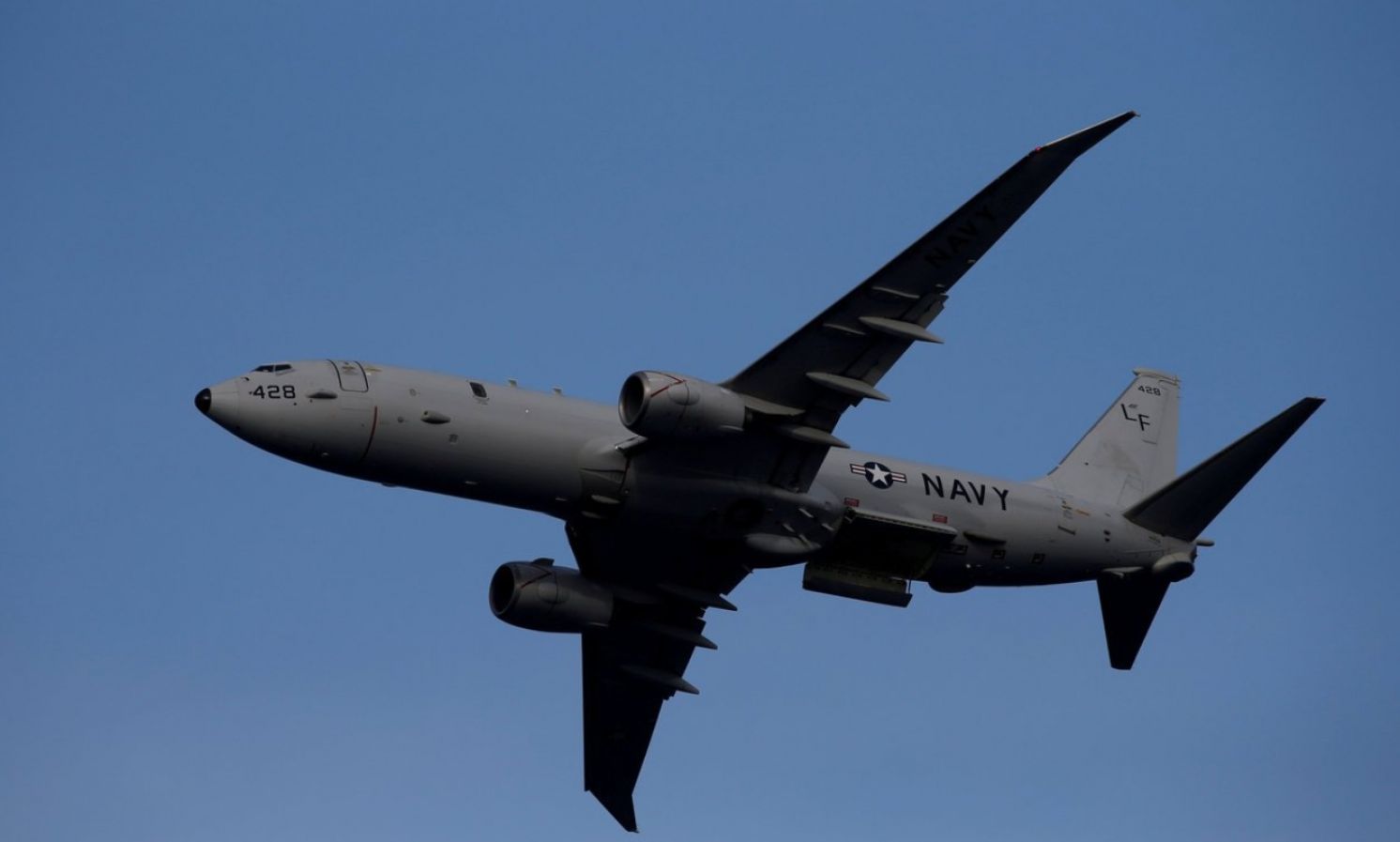
U.S. Military Aircraft Passes through Taiwan Strait, Closely Watched by China
United Daily News, June 26, 2022
When a U.S. P-8A patrol and reconnaissance aircraft passed through the Taiwan Strait on June 24, mainland China’s air and ground troops followed closely throughout the entire process, strongly challenging each other over the Taiwan Strait. The U.S. Indo-Pacific Command said in a statement that the flight over the Taiwan Strait was in accordance with international law and demonstrated the U.S. commitment to a free and open Indo-Pacific. However, Spokesman Shi Yi of the mainland’s Eastern Theater Command, criticized that the United States acted deliberately to disrupt the regional situation and stability of the Taiwan Strait.
In a press conference, Shi indicated that the U.S. aircraft passed through the Taiwan Strait and hyped it up on purpose. The Eastern Theater Command’s air and ground forces monitored the U.S. plane throughout its operations. Shi pointed out that the flight endangers the peace and stability of the Taiwan Strait, and that “we express our firm opposition to this, and the troops in the Theater will maintain high alert at all times and resolutely defend national sovereignty and territorial integrity.”
Mainland China recently announced that “international waters” is not a concept in the international law and refuted its application in the Taiwan Strait. A few days earlier, the mainland sent 29 military aircrafts to fly over Taiwan’s southeast air zone. The United States followed by sending its military plane flying over the Taiwan Strait—signaling a show of strength between them.
On June 24, the Indo-Pacific Command reaffirmed its rights to operate in areas under the jurisdiction of international law, following reports that a U.S. Navy P-8A Poseidon patrol and reconnaissance aircraft flew over the Taiwan Strait that day. The Command confirmed in a statement the aircraft transited the strait, saying, “by operating within the Taiwan Strait in accordance with international law, the United States upholds the navigation rights and freedom of all nations.” This is not the first time that the United States dispatched this type of aircraft flying over the Taiwan Strait, as it was first reported by a mainland Chinese thinktank in November 2021. The show of military muscle had led to an air collision in April 2001, causing the death of a Chinese pilot and 24 American flight personnel being detained by the mainland.
On the P-8A matter, the Ministry of National Defense indicated that Taiwan can effectively monitor all foreign aircrafts and ships passing through Taiwan and its periphery and make proper management. The national defense forces have full confidence and determination to protect Taiwan’s national security.
Former Air Force Vice Commander-in-Chief Yengting Chang indicated that P-8A’s flight exemplifies American insistence of aviation freedom, and that may be related to mainland China’s recent frequent harassment of Taiwan’s flight zone off the southeast coast.
He emphasized that the United States Indo-Pacific strategy is very clear. Whether it is warships or military aircraft, it insists on “freedom of navigation.” This move is also responsive to mainland China’s claims that the “Taiwan Strait is not international waters.” It means the United States insists on freedom of navigation and does not need to report to China prior to passing. Chang indicated that the U.S. military activities conducted mostly in the Bashi Strait or waters off Taiwan’s southeastern coast in the past. The U.S. patrol aircraft’s flying over the Taiwan Strait, therefore, is quite symbolic. He worries about the recurrence of the 2001 air collision incident. If a similar situation occurs again and again, an inadvertent verbal threat may turn into a military action.
According to Chang, mainland China’s actions are becoming more and more active. For example, in early June, they intercepted Canadian and Australian anti-submarine patrol aircrafts, and went so far as to release aluminum foil chaff for interference. This action was quite unusual and dangerous. It testifies to the change of China's tactics, they now “follow every warship, check every military aircraft” to demonstrate its solid military power.
Chang stressed that military actions are instruments of politics, and it is a thermometer of cross-strait relations as well. Since cross-strait relations are not so harmonious as in the past, the mainland’s molesting military actions against Taiwan demonstrates its desire to maintain internal stability as well as asserting its sovereignty over Taiwan. Beijing’s counter measures against Taiwan’s anti-China stand are becoming more and more evident.
From:
https://udn.com/news/amp/story/10930/6415587